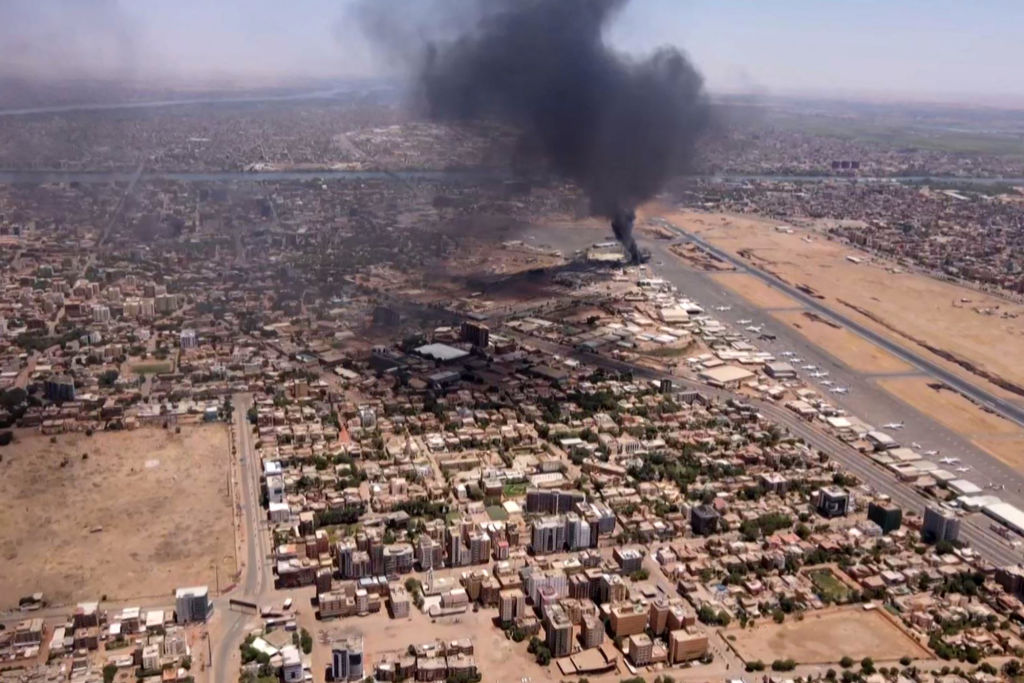Experts: Could Sudan’s Fate Resemble Divided Libya?
ADF STAFF
Cease-fires have failed. Rival sides seem evenly matched. The men at the top are increasingly entrenched in their opposition to each other. Regional players are choosing sides. Observers say they’ve seen these factors before, and they wonder whether Sudan could be headed for the kind of division that has crippled Libya for years.
For nearly a decade, Libya has been deeply divided between rival governments, one in Tripoli recognized by the international community, and the other run by the House of Representatives in the eastern city of Tobruk.
The factions spent seven years fighting before establishing a Government of National Unity in 2021. Despite that, the bitter rivals have not brought stability and peace back to the country, which remains a haven for mercenaries with Russia’s Wagner Group and other foreign fighters.
In Sudan, the fighting that erupted on April 15 pits the Sudan Armed Forces (SAF), led by Gen. Abdel Fattah al-Burhan, against the Rapid Support Forces (RSF), a militia run by Gen. Mohamed Hamdan Dagalo, also known as Hemedti.
“Al-Burhan and Dagalo are likely to fight to the end, as their sights have been set very high,” analyst Mohamed Chebaro wrote recently in the Arab News. “Sudan observers have often warned of the massive forces at their disposal, which could leave behind a long trail of destruction.”
Analysts say the clash between al-Burhan and Hemedti has been building since longtime dictator Omar al-Bashir established the RSF as a counterweight to the SAF more than a decade ago. A 2017 law formally established the RSF as an independent security force. Each group has about 100,000 members.
A short-term end to the fighting is unlikely, according to Ahmed Soliman, an analyst with the London-based think tank Chatham House.
“You have the RSF as a much more mobile force — very battle-hardened using guerrilla tactics in urban areas — while the Sudanese armed forces have air power, tanks and better logistics,” Soliman told the Gulf Times. “Over time they might be able to push the RSF out of Khartoum … if that scenario plays out there would be increased contestation in the Darfur region, the effects of which we are already starting to see.”
Since fighting broke out, the two sides have divided the capital. Hundreds of civilians have died in the fighting, and more than 700,000 others have fled their homes.
The RSF recently took over the military base in Merowe in northern Sudan, while the SAF destroyed an RSF resupply site in northwest Sudan just days after the RSF received a shipment of arms from Russia’s Wagner Group via its base in southern Libya. The SAF also attacked Hemedti’s base of operations in Darfur.
Although multinational groups continue to press both sides to stop fighting, some regional players have begun lining up behind the rival generals. Egypt expressed its support for al-Burhan and the SAF, as has the Arab League. Hemedti has received weapons from Libyan Field Marshal Khalifa Haftar and the Wagner Group, his ally in gold mining.
Financially, the sides also are well matched. Hemedti and the RSF benefit from the vast fortune the general has built from gold mining operations he and his family control in Darfur. Al-Burhan and the SAF benefit from the expansive network of companies — from agriculture to oil production to weapons manufacturing — that feed revenue into the military.
With evenly matched forces, Sudan could be poised for a prolonged period of fighting, according to Mohanad Hashim, a Sudanese correspondent for the BBC.
“Before the war started, we saw both Hemedti and Gen. Burhan stoking ethnic divisions, addressing their own constituencies,” Hashim told the BBC.
That strategy, ultimately, could create a scenario in which the country splits along ethnic lines based on their loyalty to the RSF or the SAF, according to Soliman.
Analysts say one factor could tip the balance in conflict: the SAF’s substantially superior firepower. The military has fighter jets, artillery and even exploding drones at its disposal. Using them against RSF fighters — particularly where they are dug into Khartoum’s civilian neighborhoods — could prove disastrous.
“They are essentially daring the army to destroy its own city,” Alan Boswell of the International Crisis Group told the BBC. “One would presume [the army doesn’t] want to destroy Khartoum. But for them this is an existential fight.”


Comments are closed.